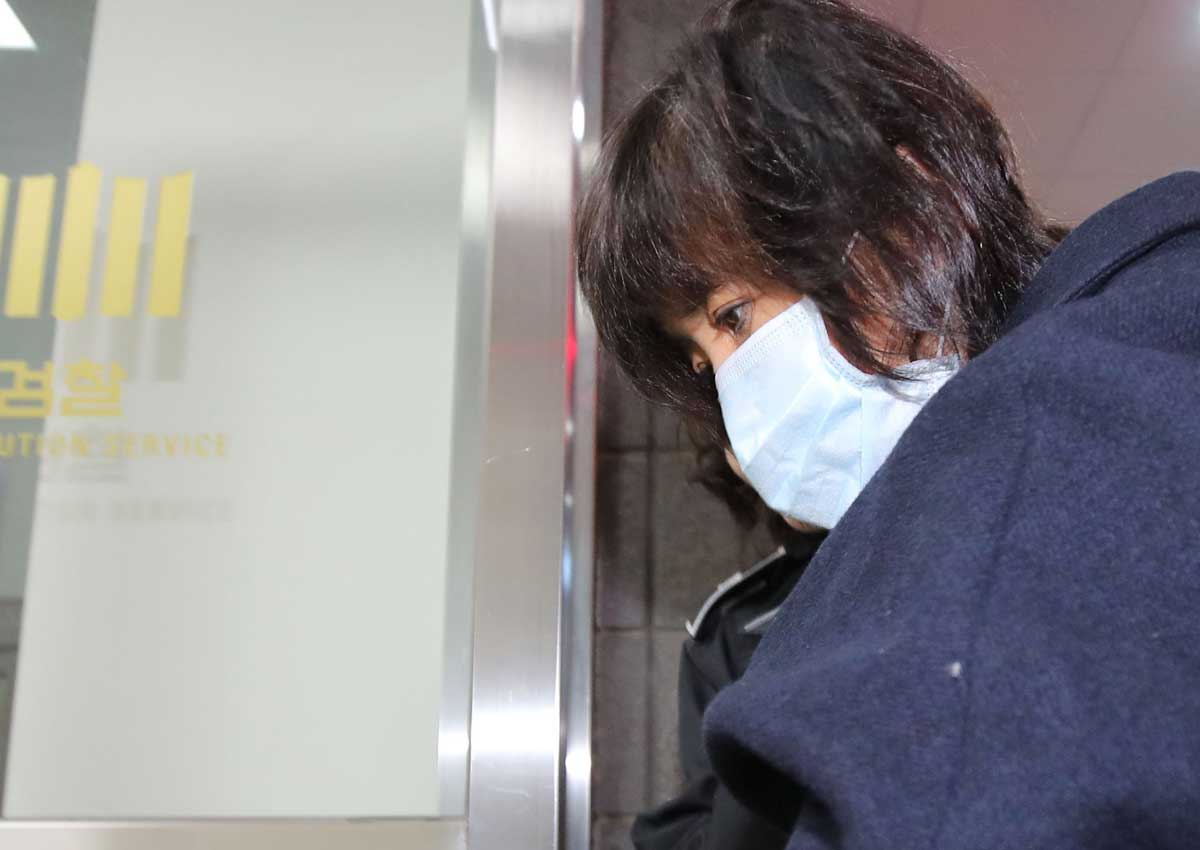SEOUL – As if South Korea’s scandal-hit president Park Geun-Hye didn’t have enough to worry about with single-digit approval ratings and massive protests, she now has thousands of very disgruntled shamans on her case.
Practitioners of the centuries-old spiritual tradition are furious that their reputation has been tainted by association with the corruption scandal involving a close friend of the president, Choi Soon-Sil.
The daughter of a shadowy religious figure, Choi has been dubbed “Korea’s Rasputin” and the president’s “shaman adviser,” because of the influence she allegedly wielded over Park and reports linking her to shamanist rituals.
“We are so angry. She made all of us look like corrupt charlatans,” said Lee Won-Bok, head of the national association, Shaman Korea.
“Whether Choi Soon-Sil is really a shaman or not, she soiled the reputation of genuine, hard-working shamans in this country. We are not like her,” Lee told AFP.
Choi is currently under arrest for fraud and abuse of power, having allegedly used her long-time friendship with Park to force donations out of major companies to foundations she set up and used for her personal gain.
She is also accused of meddling in affairs of state, despite holding no official position.
Shamanism is deeply ingrained in Korean culture, and despite living in one of the world’s most technologically advanced countries, many Koreans still consult shamans – as intercessors with the spirit world – for medical reasons, divination, or just personal advice.
The rituals can be grisly affairs for the uninitiated, with the shaman plunging a pointed trident into the head of a dead pig, or biting the heads of live chickens while dancing in a trance-like state.
But the actual purpose of such ceremonies is benign and often very intimate – wishing peace to the soul of a dead relative, or just courting good luck for an upcoming project.
According to Lee, South Korea has around 300,000 registered shamans, or one for every 165 people in the country.
Joining their number requires a rigorous initiation process overseen by an experienced shaman and Lee said his members were adamant about defending the integrity of their profession.
Hundreds have signed a petition urging the media to cease describing Choi as a shaman, and some plan to join mass street protests calling for Choi to be jailed and Park to resign.
Choi has never publicly described herself as a shaman, and the media speculation seems largely founded on the idea that she inherited the mantle from her late father.
Choi Tae-Min was a charismatic pastor who had reportedly worked as a shaman before setting up his own cult-like group in the 1970s, combining tenets of Buddhism, Christianity and shamanism.
He became a mentor to Park after the assassination of her mother in 1974, and a US diplomatic cable published by Wikileaks noted widespread rumours that he had “complete control over Park’s body and soul.” After her father’s death in 1994, Choi Soon-Sil remained close to Park and there were reports – firmly denied by the president – of shamanist rituals being performed in the presidential Blue House.
The mocking tone of much of the media coverage – with Park being described as a puppet of a “shaman-ruled kingdom” – has bothered people like Yang Jong-Sung, head of the Seoul-based Museum of Shamanism.
Yang said he was reminded of the language used during Japan’s 1910-45 colonial rule over the Korean peninsula, when shamans had been dismissed as frauds and swindlers.
“Shamanism had played an important role in our communities for centuries and then they were labelled as mere superstition to be eradicated,” he told AFP.
The practise survived the Japanese, the devastation of the Korean War and has thrived in the modern, high-tech, prosperous nation South Korea has become.
“One of the biggest times for us is election season,” Lee said. “Many candidates want to know if they have a chance to become a city council, governor, or a parliamentary member.
“But our role ends there … we don’t meddle with state affairs or extort money from companies,” he said.
In recent years, there has been government support, with some well-known shamans and regional shamanistic rituals officially designated “intangible cultural assets.” Min Hye-Gyeong, a prominent shaman, describes herself as a “grass-roots servant” for ordinary South Koreans seeking blessings for their harvests or better health for their communities.
“A big part of our job is soothing the pain and sorrow of ordinary people at times of trouble, and helping them find emotional comfort,” said Min, 50.
“It’s infuriating that the political scandal overshadowed all the positive aspects of our role and made us targets of mockery,” she said, while preparing to perform a ceremony for a 70-year-old widow in memory of her late husband.
Clad in layers of colourful traditional cloth and waving large swords and a bundle of bells, she danced, spun and leaped around to a high-volume, trance-like accompaniment of flute, drums and gong.
Her client wept, rubbed her hands together in prayer and bowed deeply as Min sang songs and recited verses to soothe the husband’s soul and ensure the health of his living relatives.
“I wanted to send this message to my late husband that I miss him so much and he does not need to worry about me as my children are taking good care of me,” the widow, Kang Tae-Suk, told AFP.
“I feel so much comfort now … my heart feels lighter, my mind calmer.”




























